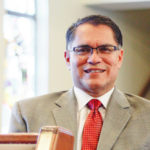WACO—A group of prominent Baylor University alumni and donors voiced support for legislation that would require private universities receiving $5 million or more annually in Tuition Equalization Grants to comply with the Texas Open Meetings Act.
Bears for Leadership Reform also renewed its call for transparency and accountability by Baylor’s board of regents in the wake of a sexual-assault scandal, calling on regents to respond to questions and remove any board members who failed to fulfill their fiduciary responsibility.
In an April 6 letter to the university’s board of regents, leaders of the reform group said they “remained appalled at the total lack of transparency” by regents.
“The core group running the board of regents has mishandled this crisis for 18 months, and there is no end in sight,” the letter stated. “A handful of board members seem determined to keep the Baylor Family in the dark as a never-ending trickle of bad publicity continues unabated.”
University responds
A statement issued by Baylor University asserted comments by Bears for Leadership Reform “ignore the considerable progress the Baylor board of regents has made to create greater visibility into the governance of the university, as well as to combat the issue of sexual assault.”
The university noted it has implemented a majority of the 105 recommendations from Pepper Hamilton, the law firm that investigated Baylor’s response to sexual violence.
In addition to the departure of Baylor’s president, athletic director and football coach, the university also has dissolved the board’s athletic committee “to bring intercollegiate athletics more in line with the mission of the university” and has provided continued training for board leaders by the Association of Governing Boards and other resources.
Baylor’s statement also pointed out regents adopted recommendations from an independent board governance task force.
Sign up for our weekly edition and get all our headlines in your inbox on Thursdays
Changes include increasing the size of the board’s executive committee, creating a task force for regent selection and granting voting rights to regents who represent certain constituencies.
However, the university’s statement underscored regents do not support opening their meetings, and the board governance task force agreed, citing “best practices” of national private universities.
“For private institutions such as Baylor, public meetings would preclude robust and frank discussion among the regents about sensitive issues such as sexual assault,” the statement said.
Senate bill calls for open meetings
Bears for Leadership Reform affirmed SB 1092 by Sen. Kel Seliger, R-Amarillo. The bill would require the governing board of any private nonprofit college or university that receives $5 million or more annually in Tuition Equalization Grants to comply with the same open meetings and open records laws that apply to public higher education institutions.
It also would prevent schools from requiring board members to sign nondisclosure agreements restricting access to information required by law.
Two Texas universities meet the $5 million threshold—Baylor and the University of the Incarnate Word in San Antonio.
“This seems like a reasonable approach from a taxpayer’s perspective, but it’s also important to the Baylor Family, since the board has chosen to continue meeting in secret,” the letter from Bears for Leadership Reform said. “Unfortunately, the board’s leadership has responded by hiring high-priced Austin lobbyists to kill the bill.”
‘Let the truth come out’
“Let the truth come out,” John Eddie Williams, a Houston lawyer and president of Bears for Leadership Reform, said in a teleconference announcing the letter his group sent to Baylor’s board.
Regents have “squandered precious resources” that could have benefitted students in an effort to maintain the board’s “cloak of secrecy,” said Williams, a major donor to Baylor, for whom the school’s football field is named.
Williams and others—including Temple businessman and major Baylor donor Drayton McLane and former Gov. Mark White—organized Bears for Leadership Reform last November.
Randy Ferguson, a former Baylor regent who serves on the Bears for Leadership Reform board, pointed to the recommendations from the Pepper Hamilton law firm that investigated Baylor’s response to sexual assault complaints.
He noted the recommendations included governance issues not addressed in the regents-produced Findings of Fact, and asked why the board did not choose to include any information about its own failures in the document.
“Is this why the Findings of Fact came from the board instead of Pepper Hamilton?” Ferguson asked. “It really begs the question: Is this intentional? Could it be an intentional cover-up just to protect certain board members?”
Ferguson called on regents to answer several questions:
- What are the “actual or perceived conflicts of interests” alluded to in the recommendations?
- How have board members’ conflicts of interest affected the victims of the sexual-abuse tragedy at Baylor?
- Did the conflicts of interest constitute a breach of board members’ fiduciary responsibilities?
- Who are the board members—past and present—with conflicts of interests?
- Has the board failed to exercise due diligence standards in selecting current or former board members?
- Who are the regents who failed to exercise due diligence in board member selection?
- Which regents—past and present—were elected outside of due diligence standards?
“Doesn’t the Baylor Family have the right to know the answers to these questions?” Ferguson asked.
“In our opinion, the failure of leadership described in the (Pepper Hamilton) recommendations is enough to suggest a serious breach of fiduciary responsibility on the part of the leaders of the board of regents,” the letter from Bears for Leadership Reform said.
“The failure of leadership has had a profound impact on the victims of this tragedy and the reputation of Baylor. Indeed, Baylor has become the national poster child for sexual assault on campus, due to the lack of proper programs, policies and procedures. More significantly, the board is an example of how failed leadership that operates and deliberates in secret can allow a scandal to continue to engulf a university.”
During the teleconference, Williams continued to question what the sexual-abuse scandal and the board’s handling of it cost Baylor, including money spent to “buy the silence of victims and potential witnesses.”
In December, his organization reported a professional services firm that specializes in business valuation and litigation consulting estimated the cost at up to $223 million.














We seek to connect God’s story and God’s people around the world. To learn more about God’s story, click here.
Send comments and feedback to Eric Black, our editor. For comments to be published, please specify “letter to the editor.” Maximum length for publication is 300 words.